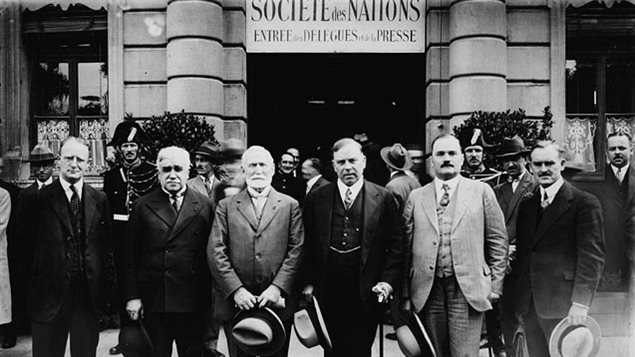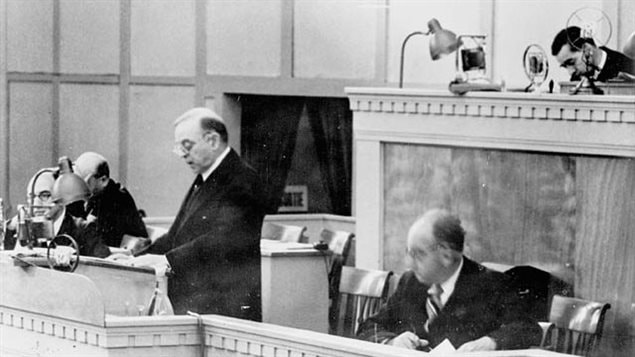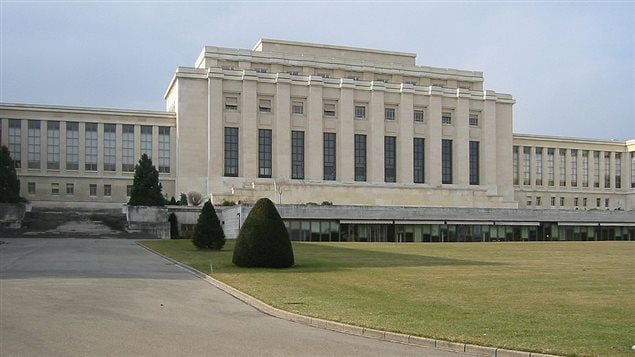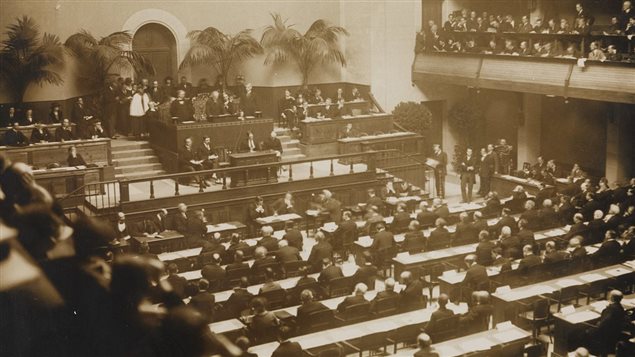The world had finally worn itself out. The First World War with its horrific loss of life, destruction of Europe and near bankrupting of dozens of nations, had come to an end.
Out of the destruction of the war, and in fact even before the war had started, came a noble idea of creating an international forum where differences could be talked out, negotiated, reasoned, and thus avoid the tragedy of war.

Canada, which had proven itself to be one of the major players in the war and a critical factor in the victory, was thus now considered an independent voice, separate from that of Great Britain. As such it became one of the founding members of a new organization called the League of Nations, created in 1919, and which along with the Treaty of Versailles, came into force on this date, January 10, 1920.
The founding nations were: Argentina, Australia,Belgium, Bolivia, Brazil, Canada, Chile, China, Colombia, Cuba, Czechoslovakia, Denmark, El Salvador, France, Greece, Guatemala, Haiti, Honduras, India, Italy, Japan, Liberia, Netherlands, New Zealand, Nicaragua, Norway, Panama, Paraguay, Persia, Peru, Poland, Portugal, Romania, Siam, Spain, Sweden. Switzerland, South Africa, United Kingdom, Uruguay, Venezuela, Yugoslavia

Article 10 of the Covenant called on members to respect each other’s territory and independence, but that should an attack occur against one member, it would be considered as an attack against all.
Interestingly Canada was not in favour of this aspect of the Covenant fearing it could be drawn into a future European war.
In the event of a dispute, the League would invite members to discuss the situation, and if need be issue a verbal warning to the aggressor if one nation was seen to be the offender.
Economic sanctions by member states could also be imposed if the offender would not abide by the assembly’s decision, and there by bring the aggressor back into line without resorting to military action.
If that failed, the League could opt for military action.

But the League had major flaws in that it did not require members to provide any military force and had nothing to back up any threat.
In addition, US President Woodrow Wilson, a strong proponent, could not get America to join, thus removing one of the world’s strongest military and economic powers from having a role.
Under the League terms, Germany was not invited to join, having started the war, and Russia was not invited as it was a Communist country. Germany eventually was allowed to join in 1926
Meanwhile the two major powers, Britain and France were so depleted by the war, they had little economic or military power to back league decisions.
While the League had some minor successes in international conflicts, it also failed to get involved or resolve several others.

As its weakness and failures grew such that in the 1930’s nations like Spain, Italy, Japan, Germany and others withdrew.
The international agressions which led to the Second World War were the ultimate failure of the League which essentially ended with the start of the war and was officially dissolved on April 18 1946.
However, the idea remained strong and a new organization which had learned from the League’s failures was created with the assets of the League transferred in 1946 to the new entity, the United Nations.
Additional information -sources







For reasons beyond our control, and for an undetermined period of time, our comment section is now closed. However, our social networks remain open to your contributions.